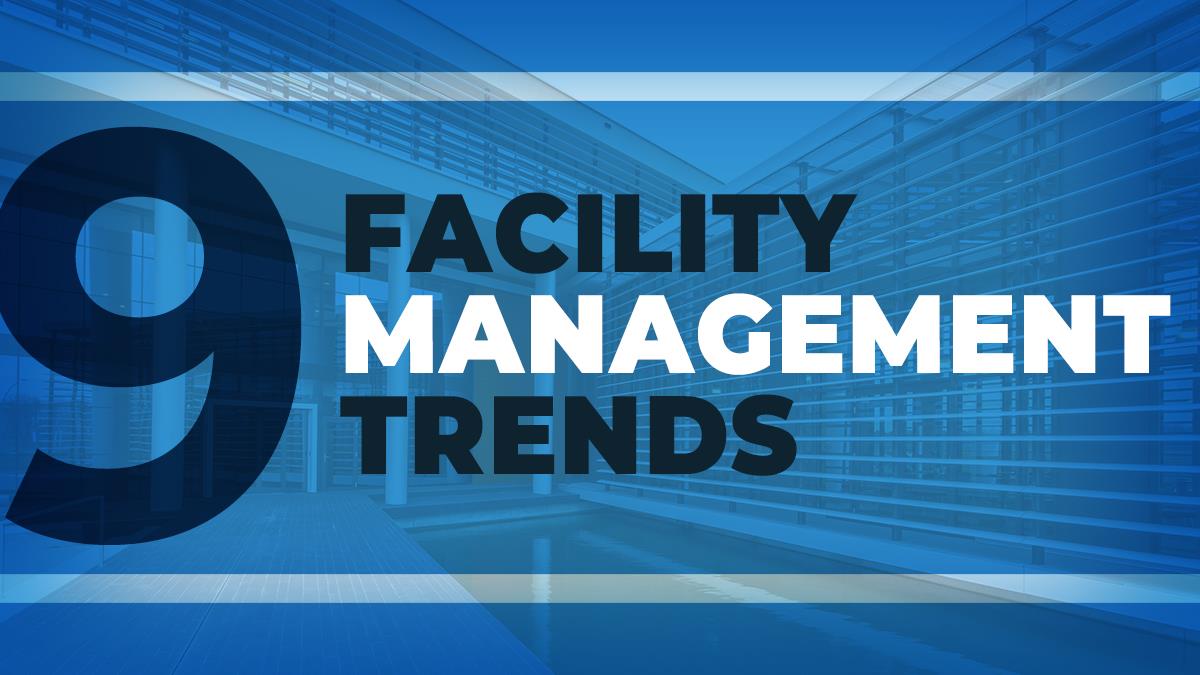
Are you responsible for facility management of commercial or residential premises? If so, you've probably noticed that your responsibilities are evolving rapidly as buildings become more advanced and complex. Studies suggest that the market for smart buildings will grow to $408.21 billion by 2030, up from $96.96 billion in 2023.
The rise of smart buildings is just one factor shaping the 2024 facilities management trends. These trends include a focus on ESG reporting and sustainability, the importance of predictive and preventative maintenance, and higher construction standards. It's crucial to stay informed about these upcoming trends and to consider the skills and abilities you should look for in new hires based on them.
Facility Management Trends for 2024
So, does it interest you to know about the exciting drifts facilities management is set to embrace next year? Well, here are the top highlights you can expect:
1. Latest and Complex Building Systems
As technology becomes increasingly pervasive in buildings, you must deal with new and more complex building systems, such as electrical, HVAC, safety, and engineering. These systems are being modernized to be more efficient, automated, and networked.
They enable you to monitor and report on the different amenities and processes in these new facilities, providing you with a greater understanding of the building's strengths and limitations. This requires that you have a solid grasp of building information systems in relation to managing your facility.
You can construct productive workflows for building teams using these sophisticated and complicated solutions. This guarantees that your facility management is both practical and efficient.
2. Growing Building Standards
Building standards are getting stricter thanks to federal, state, and local government regulations. Take A.B.2446, for instance, which mandates that new buildings must have lifetime studies and disclose their environmental impact in California. And there's more to come with A.B.593, a regulation the California Energy Commission has planned to reduce emissions.
These regulatory changes, especially when it comes to environmental requirements, put more pressure on you to upgrade your buildings and operate sustainably. On top of that, the National Electrical Code of 2023 has introduced new criteria for energy efficiency and cybersecurity in the management of a facility.
3. Preventive and Predictive Maintenance
It is inevitable to use both predictive and preventive maintenance methods to tackle potential equipment breakdowns before they happen. By incorporating advanced equipment monitoring technologies and analytics, you can proactively address concerns and avoid unnecessary downtime.
Another way you can achieve this is by scheduling repairs and maintenance during non-operational hours. This approach enhances the building's overall performance and boosts tenant satisfaction while saving costs on unexpected repairs.
4. Rapid Software and IoT Technology Adoption
Automation in facilities management is rapidly expanding. Some buildings, for example, utilize AI-powered monitoring systems to alert security of unusual movements or activities and provide increased security.
Field service management software automates staff scheduling and dispatch to handle various service requests within buildings, enhancing management and service delivery. As a result of automation and other IoT technology, you can do more activities faster and with fewer labor needs.
5. Sustainability and ESG Reporting
Environmental, social, and governance (ESG) reporting has become a significant concern in real estate and facilities management. The rise in regulations regarding the environmental impact and sustainability of buildings highlights the importance of tracking your performance and making necessary improvements.
As a result of this growing facilities management trend, more and more managers are turning to ESG reporting software. With this software, you can generate comprehensive reports on the sustainability performance and practices of your building. It also allows you to understand the environmental impact of your facilities better.

6. Technological Innovation to Enhance Performance
Technology is the root of all facility management trends shaking up the business. You must’ve noticed all sorts of exciting changes, like new ways of doing business, innovative ideas for adding value, and some seriously imaginative services being offered.
One significant shift that's happening is the widespread use of technology to meet performance targets. It's completely changing how things are done and challenging traditional ways of operating.
7. Increase in Operational Productivity
Facility Management (FM) is all about ensuring that everything is running smoothly and keeping people comfortable and safe. To make it all work, you primarily rely on a mix of services, both done in-house and outsourced. These services can be divided into two categories: hard FM and soft FM.
Hard FM services include things like taking care of the building, mechanical, electrical, and plumbing work, and managing HVAC systems. On the other hand, soft FM services involve tasks such as cleaning and security.
Through technological resources, there will be a sharp scrutiny of soft and hard FM teams separately. So, any error or discrepancy can be spotted and rectified in real-time. 2024 is going to be a year of keeping things in order and ensuring everything is taken care of.
8. Outsourcing and Integrated Facilities Management (IFM)
Outsourcing has taken off lately, especially in places where it makes up more than half of the entire FM industry. This trend towards integrated facilities management helps you to deal with operations with a comprehensive approach.
It's about making things simpler and improving performance in a bunch of different areas, like real estate, energy management, production maintenance, and staff services.
9. Skill Augmentation
Finally, ongoing skill development is becoming increasingly crucial due to rapid technological improvements. It's essential to keep up with the latest communication technologies and be able to operate and maintain modern devices.
Do you want to navigate the complex technological landscape of modern FM practices smartly? And do you want to stay on top of the 2024 facilities management trends? If so, keep enhancing your technical skills and update your knowledge about the new building management strategies and techniques.





